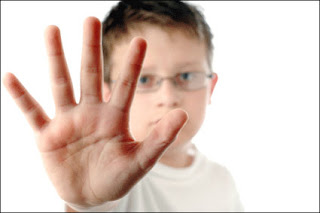How To Talk With Your Children About Child Abuse
In light of current events in Ramat Bet Shemesh, it is an opportune time for us all to review and act upon the important advice of Dr David Pelcovitz.
Here is the article/summary by Magen, published after Dr Pelcovitz presentation in Bet Shemesh for Magen in January this year:
Dr David Pelcovitz - How to Discuss Child Abuse with Your Children
Dr. Pelcovitz spoke at Raishit about protecting our children from abuse, specifically sexual abuse. He emphasized that talking to our children about these points is not an "event" but a "process." This should be an ongoing dialogue and attitude about personal safety. He said we should talk about personal safety, the same way we talk about fire safety or safety crossing streets...It does not have to frighten children. He offered five important guidelines for parents to share with children.
1. No matter what you do or what you tell me I will always love you. I want to hear about the good and the bad. (80 % of children molested never tell.)
2. No one is allowed to make you feel scared or hurt you. I will protect you.
3. There are three kinds of touches: Yes touch, No touch, and I don't know touch.
Yes touch: A hug from a parent, for example. No touch: A kid hits you, for example. I don't know touch: A touch that doesn't hurt, but you feel uncomfortable, strange, or scared...This is the kind of touch that you always tell your mother or another adult about. No one is allowed to touch you in a way that makes you feel uncomfortable.
4. Parts of the body that are usually covered by a bathing-suit are private. No one should show you theirs or touch
you there, and vise-versa.
5. If anyone tells you to keep a secret from your mother that means, go tell your mother right away!
Dr. Pelcovitz said that with older children we need to teach about personal space and be aware of 'grooming' behaviors. Perpetrators don't usually come right out and molest a child. Most children are abused by someone they and their parents know and trust (90 %!). The grooming relationship usually starts with extra attention by the adult, like offering sleep overs and trips to the child, unexplained gifts, touch that is enjoyed by the child and is safe, tickling games, and then moves on gradually to unsafe touch...which is very confusing to the child and is why they usually don't tell. They usually take responsibility for the abuse...He stressed that pre-school age children always take responsibility because of the developmental stage they are in. They believe they 'make things' happen.
He said that grooming should not be confused with youth workers and teachers who give appropriate attention to children. But he said that parents should trust their gut. If something feels "off" it probably is. He said that keeping abuse quiet doesn't work and enables abusers to move on to the next victim.
Throughout the presentation, Dr Pelcovitz stressed the importance of reporting any and all suspicions of abuse to the appropriate legal authorities, being the Social Services and/or Police.
Magen can assist you in making these reports as user-friendly for the child and parents as possible.



"current events" - if it was in my kid's school, would I know yet?
ReplyDeleteYes - you would know. All the parents have been informed by the school/cheder about the arrest of the teacher.
ReplyDeleteIsn't it a sick world that we live in? People in RBS just don't want to believe and hear the truth.
ReplyDelete